Bibliography (-4 Billion to -300)
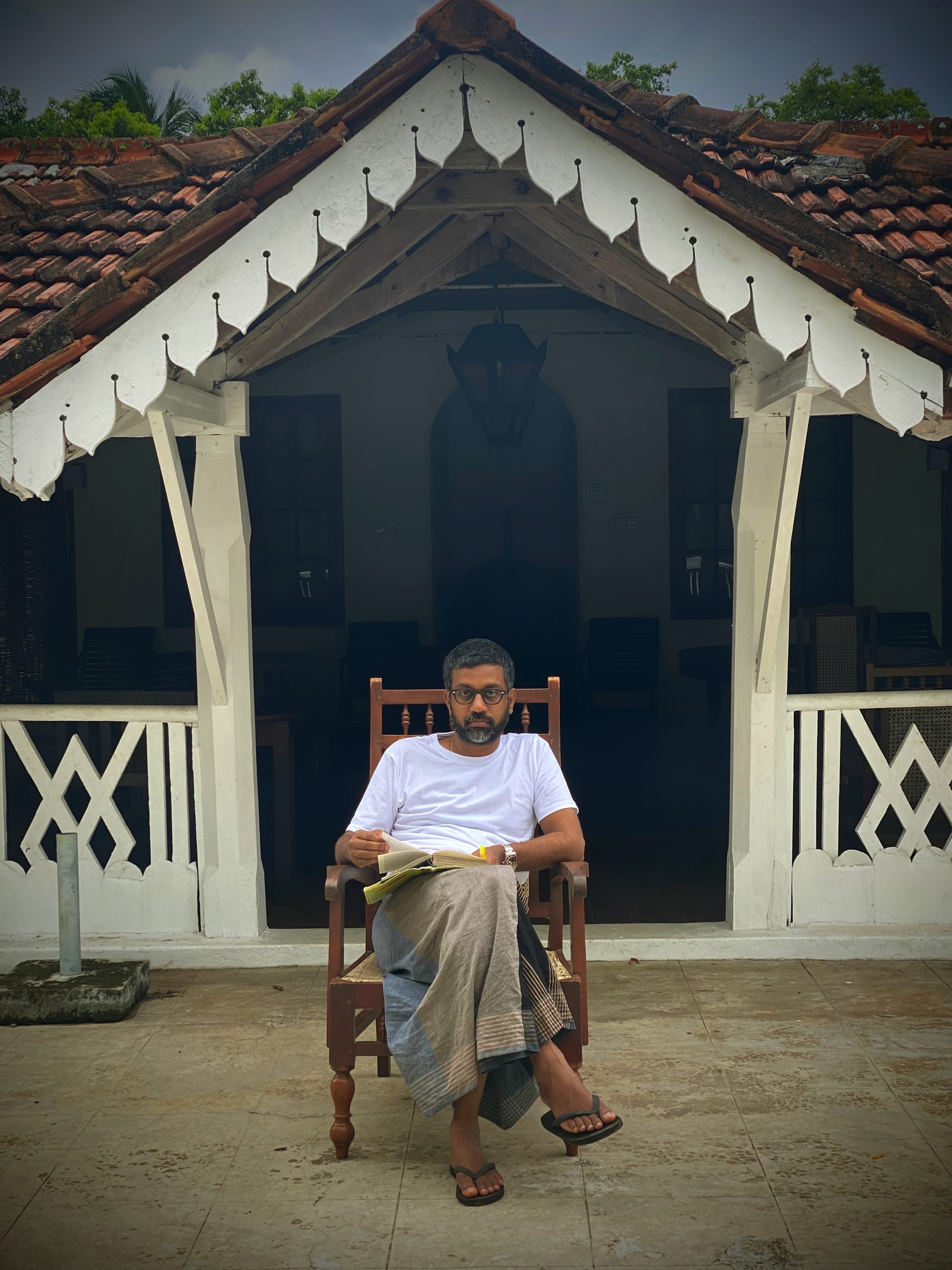
These are some books I reference constantly. I start in chronological order, from -4 billion years ago to the Axial Age (ending around -300 so far, this is a work in progress). Some of these books obviously weren't written a billion years ago, but I'm dating from the fossil record they reference.
You can download these books directly as EPUB or PDF, (except for the most important book, unfortunately). I must confess that I am a terrible pirate, Arrr. I think everyone has the right to a library and a pirate library is just a library for the poor and distant. I couldn't function as a writer in Sri Lanka without the pirate library system (shoutout LibGen and Anna's Archive). I both pay for books and pay for piracy, but I think everyone deserves a look inside a book for free. As a wise man told me, ‘have a look, it's in a book, a reading rainbow.’
These books are the foundation of my theory, my literal Genesis. My faith starts from microbial life, which I consider the pinnacle of God's creation (God itself, really). We are all part of an unbroken line of rebirths that goes back to the first cells dividing and we reached the peak of our powers about 3 billion years ago (and declined since). My theory is that humans are just spaceships for ancient microbes (bacteria, virii) to walk about on land. Prove me wrong.
The latter books, from the Axial Age, are the foundation of my philosophy. The Buddha's Dhammapada and Confucianism, which were getting at the same point. These philosophies both get to the point that all philosophies are inadequate and that there is a way or path out of this bullshit. You must, however, understand that I am a bad Buddhist. As the recluse Gotama said in the All-Embracing Net Of Views,
Whereas some recluses and brahmins, while living on the food offered by the faithful, earn their living by a wrong means of livelihood, by such debased arts as predicting:
there will be abundant rain;
there will be a drought;
there will be a good harvest;
there will be a famine;
there will be security;
there will be danger;
there will be sickness;
there will be health;
or they earn their living by accounting, computation, calculation, the composing of poetry, and speculations about the world—
the recluse Gotama abstains from such wrong means of livelihood, from such debased arts.
I long thought I practiced right livelihood, but I don't (according to the Buddha, right livelihood is being the Buddha, basically). I feel quite seen by the Buddha in this passage, and quite scorned. Or as Socrates (via Plato) said about reading and writing in general,
The loyalty you feel to writing, as its originator, has just led you to tell me the opposite of its true effect. It will atrophy people’s memories. Trust in writing will make them remember things by relying on marks made by others, from outside themselves, not on their own inner resources, and so writing will make the things they have learnt disappear from their minds. Your invention is a potion for jogging the memory, not for remembering. You provide your students with the appearance of intelligence, not real intelligence. Because your students will be widely read, though without any contact with a teacher, they will seem to be men of wide knowledge, when they will usually be ignorant. And this spurious appearance of intelligence will make them difficult company. (Phaedrus, Plato)
So with that as an unrecommendation of this whole project, here's my reading recommendations. I'm listing things in 'chronological' order as in starting with the fossil record 4 billion years ago. Might as well start a story at the beginning.
Note that the canonical version of this biblio will be here:
https://indi.ca/bibliography/
-4.374 billion years ago
Indica: A Deep Natural History Of The Indian Subcontinent
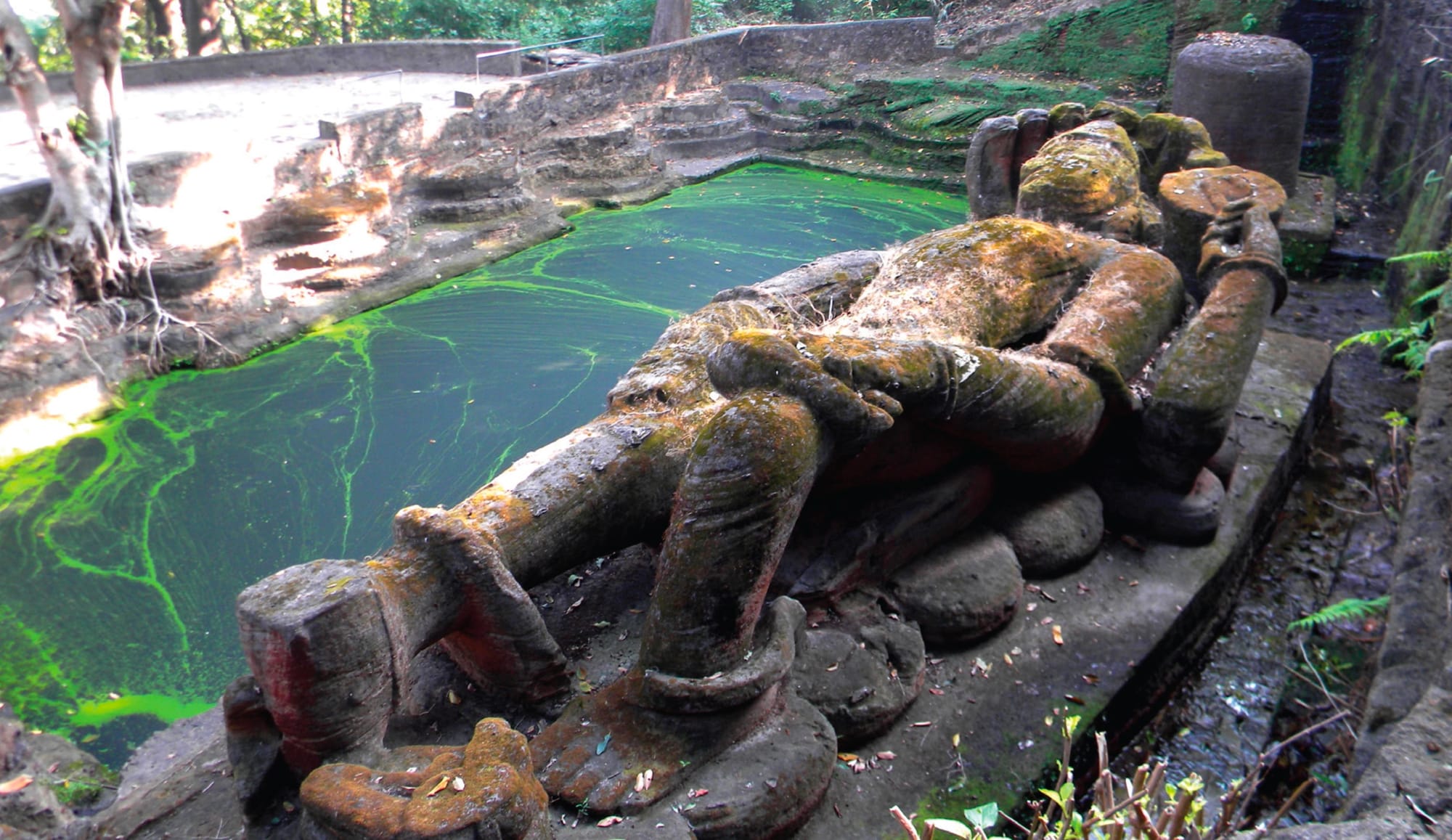
I picked up this book because indi.ca is my pen name, but Pranay Lal's work is much more important. This book covers the geological history of the Earth, specifically the Indian subcontinent. I date this book to -4.374 billion because that's the first record mentioned. Stone is the first (and will be the last) form of writing. In this case, the Jack Hills zircon.
Lal's book is fascinating because it tells my history as a rock monster, it's a geological history but focused on the particular geology of my homeland. This book introduced me to a lot of things, most importantly the Great Oxygen Holocaust (never forget). This was the mirror image of the shitty ‘carbon’ holocaust we're experiencing today, oxygen pollution leading to a great freezing. And it was ancient lifeforms that did it.
Around -3.4 billion, cyanobacteria discovered solar energy, went fucking crazy, and farted so much oxygen that things literally snowballed. The earth almost became an ice cube, forever, like reverse Venus. Life as we know it barely made it, and we barely remember these great ancestors, even as we burn their bodies as oil and gas, thinking we're gods. We've actually just defiled much greater gods tombs. These ancients lived through prehistory by the skin of their nuts, as the New Jersey scholar Paulie Walnuts said.
The Great Oxygen Holocaust (never forget) is just one of the crazy stories in this book about supposedly boring geology. It's actually the most fascinating, what's written in stone. This book contains many fascinating stories from the time before stories, I can't recommend it highly enough. Indi.ca recommends Indica, in myriad forms.
You can buy Pranay Lal's Indica from Penguin India. I gave my copy to an unappreciative cousin and need to order another. An EPUB is available from the pirate bibliotheque, but it's enormous. I've shared the PDF here.
indi.ca/
the-earths-weird-gravity
and much more, subconsciously
-4 billion
Microcosmos: Four Billion Years Of Microbial Evolution
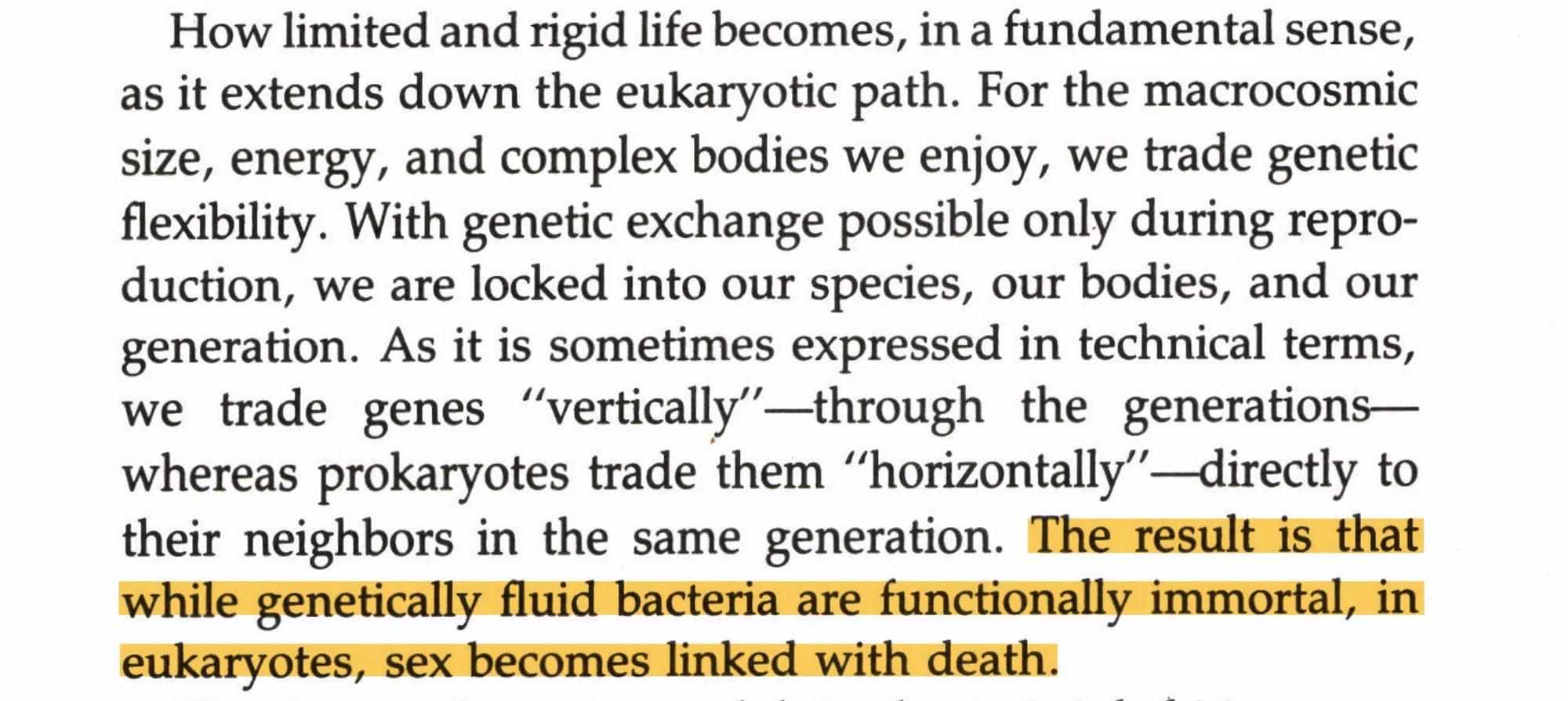
This book has given me a religious attitude towards microbes, who I now consider to be immortal living gods. Ancestor worship is the oldest form of worship and the ancestors walk among us and inside us, as invisible creepy crawlies. Microcosmos is a masterwork of science writing by Lynn Margulis and Dorion Sagan (Carl Sagan's son and his mama). It's the special sort of science book that makes you believe in God.
This one is too big to upload, so here's a link. Microcosmos is available for purchase from the University of California Press.
indi.ca/
bacteria-is-an-immortal-living-god
how-we-misunderstand-ai
my-favorite-writing-tool-is-my-wife
-10,000
Energy And Civilization: A History
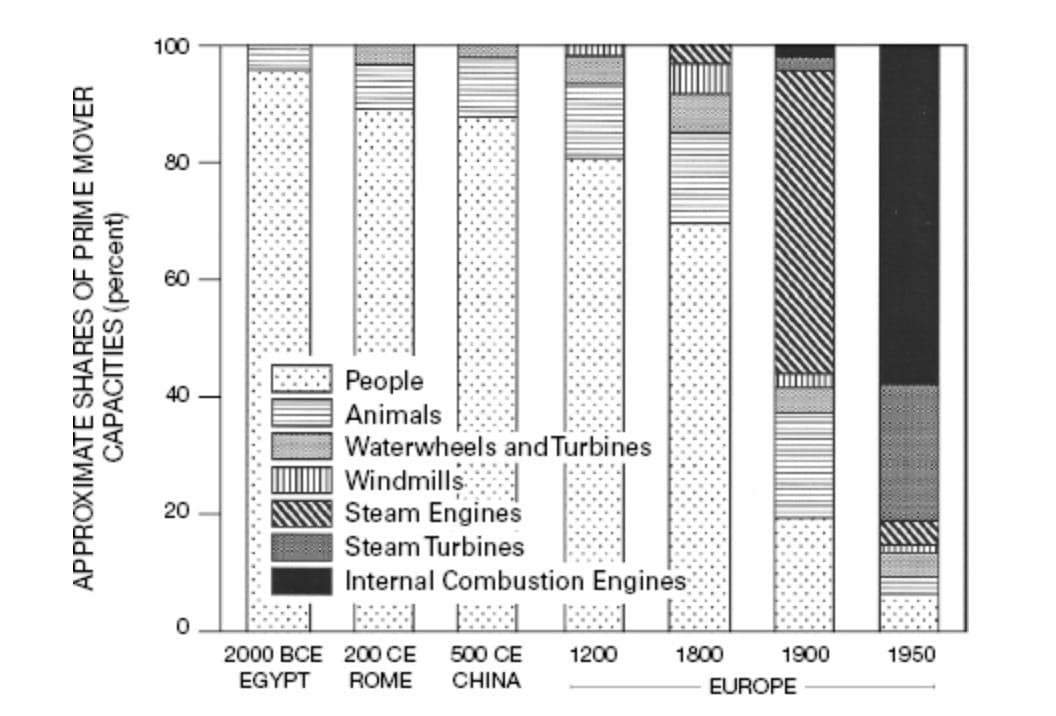
This is Vaclav Smil's deep history of energy. I read it because I was trying to understand modern energy problems, and it made me realize that modern thinking about energy is quite narrow. Smil describes how—for most of human history—energy was the sweat of our brow and cow, both ultimately deriving sustenance from the sun. He takes a very deep and wide view on energy, which makes discussing current problems simpler.
indi.ca/
how-humans-have-been-cheating-death-for-10-000-years
why-colonialism-happened
what-is-gdp
how-high-status-is-high-carbon
americas-made-up-immigration-problem
unique-american-empire
why-america-will-collapse-without-a-green-new-deal (naive)
-3000
The Collapse Of Complex Societies
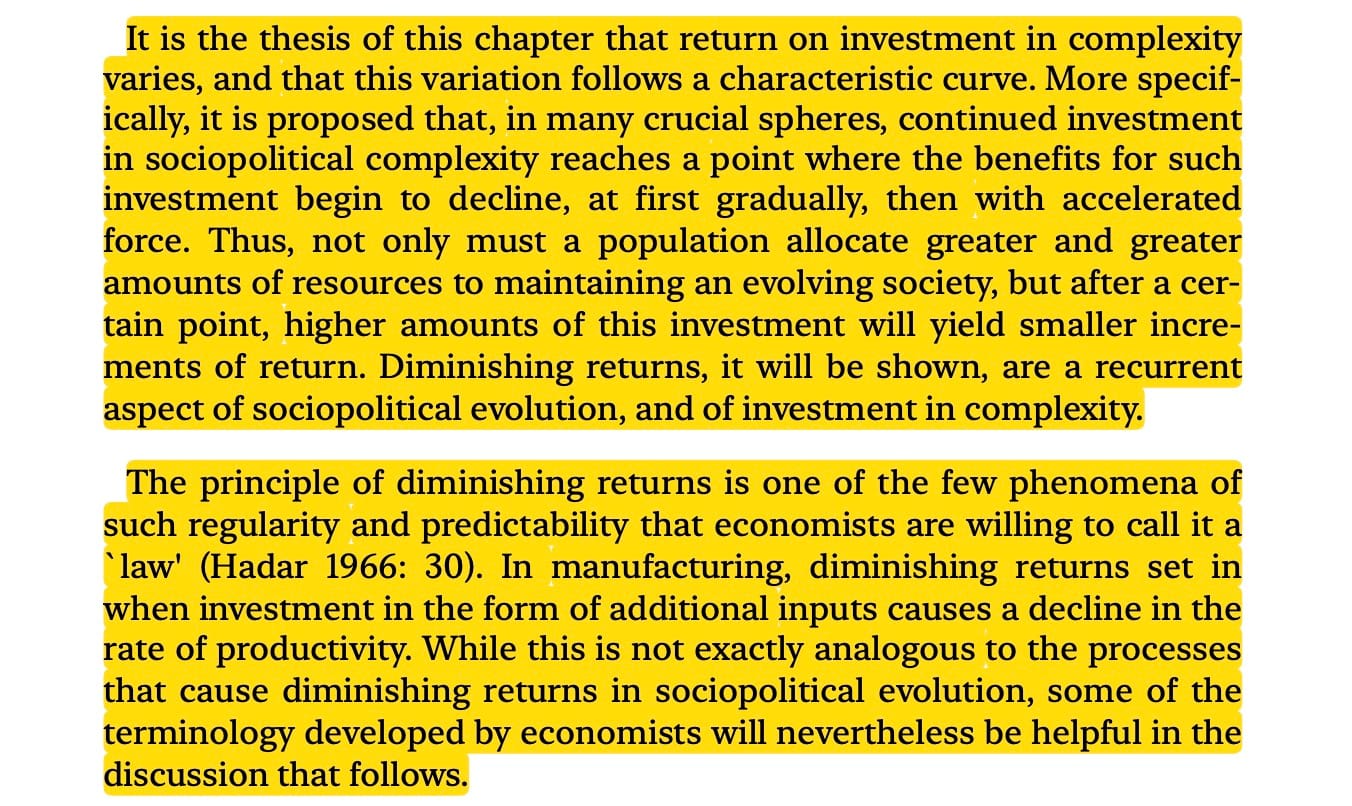
Joseph Tainter's Collapse of Complex Societies is a holy book for doomers. Basically, they all collapse, present company included. Tainter's basic theory was that any complex society gets diminishing returns and an increasingly bloated elite that kills the golden goose like cancer. I've been thinking through Tainter for years and I can't say he's wrong.
indi.ca/
ai-is-a-sign-of-collapse
how-civilization-is-waste
why-america-will-collapse-without-a-green-new-deal (naive)
america-has-a-terminal-case-of-capitalism
the-us-military-is-in-a-death-spiral
-1500
Ancient Egyptian Literature — Volume II: The New Kingdom
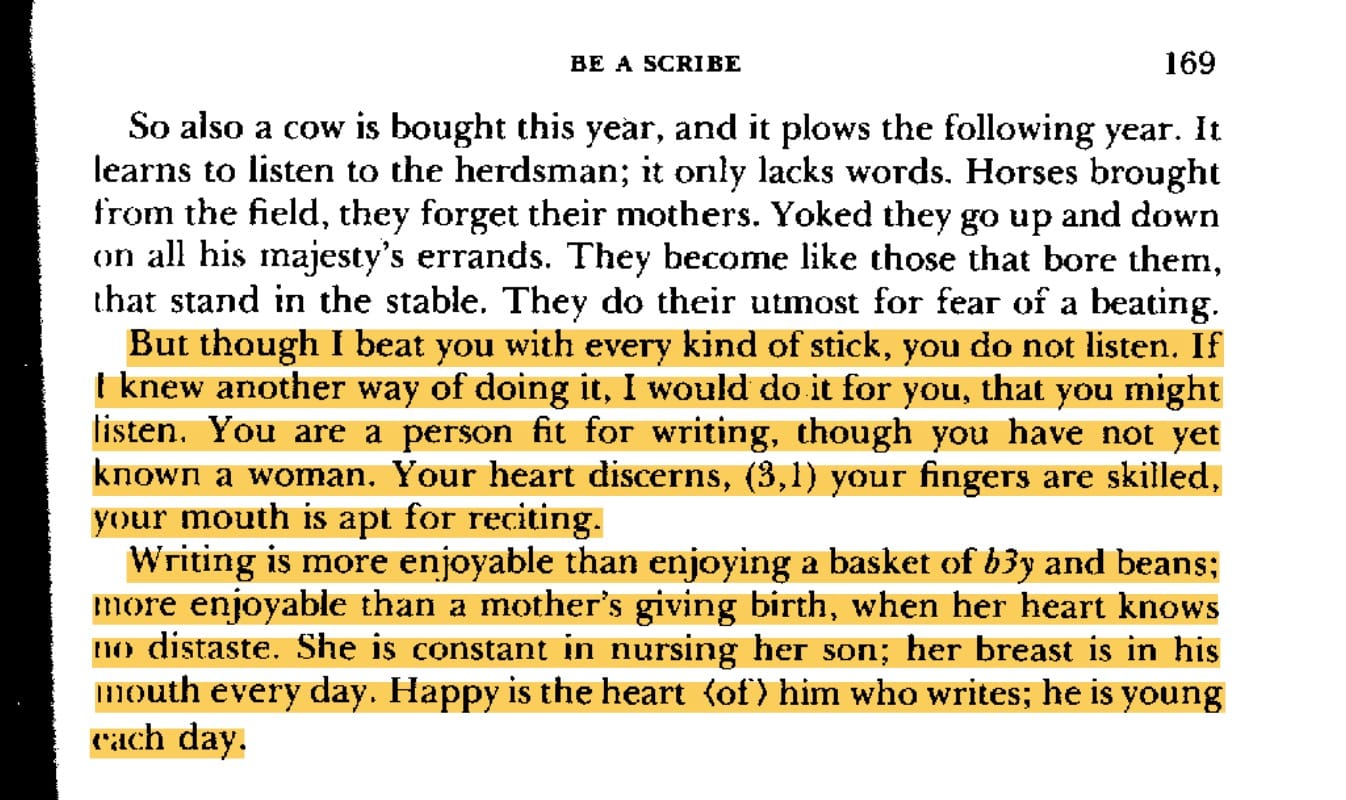
Skipping ahead a bit, we get to stone writing from Ancient Egypt, translated by Miriam Lichtheim. This collection of inscriptions and scrolls speaks to us from the dead, and what it says is both deep and droll. For example, this bit on The Immortality Of Writers (from around -1200),
Man decays, his corpse is dust,
All his kin have perished;
But a book makes him remembered
Through the mouth of its reciter.
Better is a book than a well-built house
Than tomb-chapels in the west;
Better than a solid mansion
Than a stela in the temple!
Or this solid household advice from Scribe Any of the Palace of Queen Nefertari (around -1300),
Do not control your wife in her house,
When you know she is efficient;
Don't say to her: “Where is it? Get it!”
When she has put it in the right place.
Let your eye observe in silence,
Then you recognize her skill;
indi.ca/
ancient-egyptian-writing-advice
the-wrecking-of-names
-500
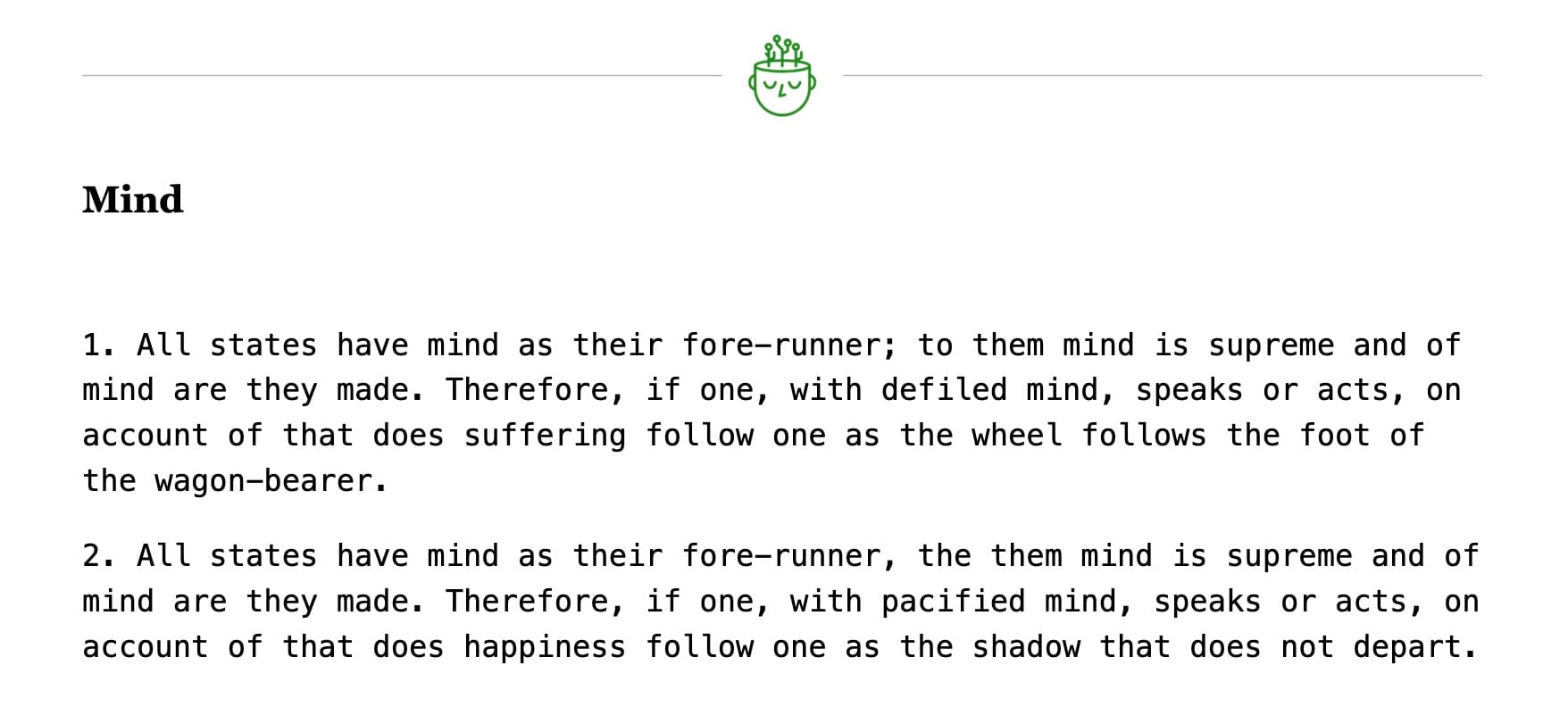
The Dhammapada — Lord Buddha
The Dhammapada is a collection of sayings of the Buddha, it's very short. You can read it in an hour. There are hundreds of translations but I've only read one, a hundred times over. I prefer the EW Adikaram translation, but this is quite local and obscure. It's simply the copy they had at my nearest bookshop and the author seemed to be from my neighborhood. Adikaram's Dhammapada is very simple and unadorned, it's just the Buddha's words in Pali and Adikaram's translation into English. I'd say this is the foundation of my philosophy, though I'm a bad Buddhist. I've seen the Buddha's path, it's just too hard to follow. Maybe next lifetime.
This is the one book I cannot offer you a direct download of (I should just type it up myself). Maybe you can buy it here, maybe you're near a library that has it, I would love to give you this translation more than any other, but I cannot. I'm sure other translations are fine, I just don't know them.
indi.ca/
the-buddhas-words-mindfulness
the-buddhas-words-the-pairs
the-tyranny-of-we
buddhist-no-self-social-problems
towards-non-violent-governance
how-intermittent-fasting-is-a-buddhist-diet
totalitarian-nightmare-arendt
the-ouroboros-of-big-data
The Analects: Confucius
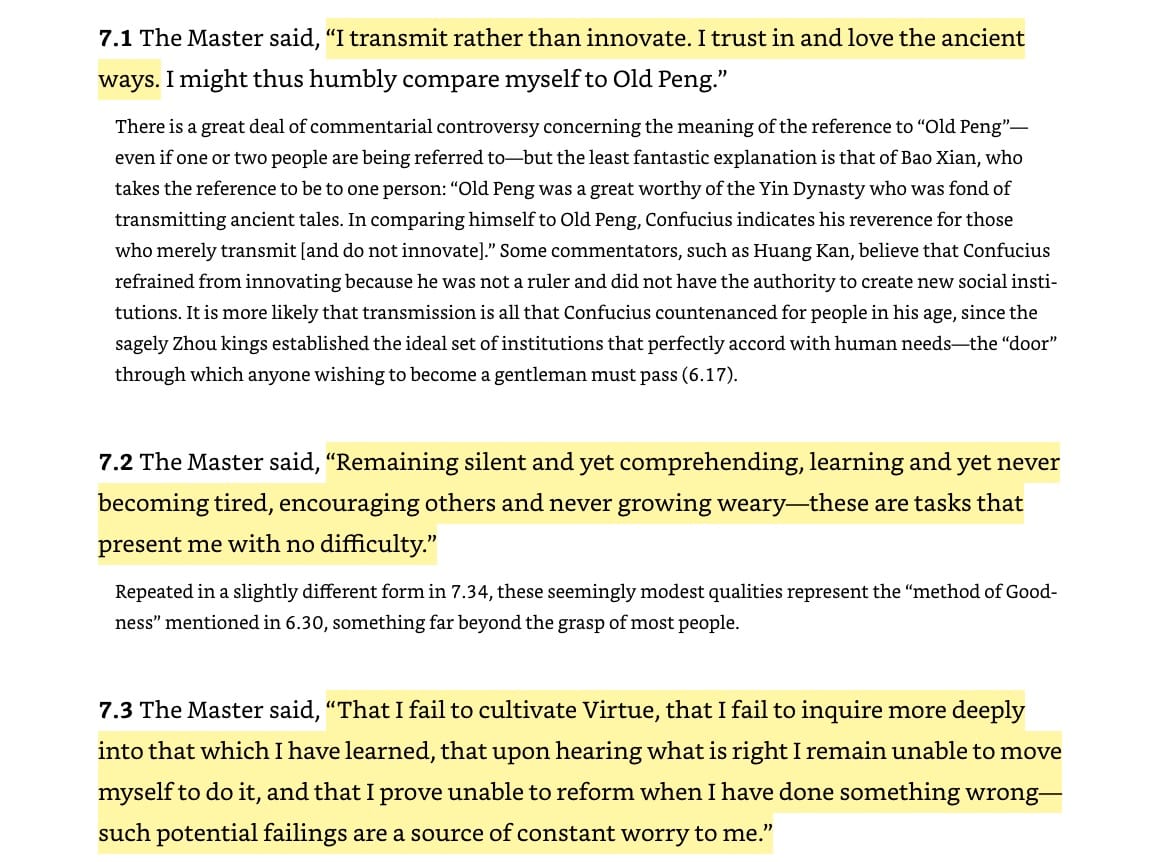
Whenever I try to learn about a nation in the news I try and go as far back as humanly possible. For understanding China, that meant reading Confucius, or Master Kong (Kongzi) as he's more properly known. I follow the Hackett editions for all the Chinese stuff, in this case Edward Slingerland is the translator.
Master Kong was a teacher, and the Analects are dialogues between him and his students, complete with jokes and gentle ribbing. Reading The Analects like being in a room with the Master, who was both a genius and quite fun. The Analects is not hard reading, but at the same time it's impossible.
What I've, personally, taken away from Kongzi is the parts I still don't understand. When asked about an ideal ruler, for example, Kongzi said, “He made himself reverent and took his proper [ritual] position facing south, that is all.” What does this mean? Like a good teacher, you learn more from the questions he raises than the answers.
indi.ca/
confucius-and-the-programming-language-of-power
confucian-parenting-advice
why-confucius-would-hate-donald-trump
how-long-will-the-fall-be
how-to-garden-your-goodness
progress-is-an-insult-to-our-ancestors-2
when-did-philosophy-get-so-boring
how-to-deprogram-yourself-from-hating-china
tolstoy-on-why-we-need-to-abolish-government
prison-unethical-experiment
towards-non-violent-governance
why-i-want-the-world-to-end
forget-gdp-we-need-zdp
americas-made-up-immigration-problem
why-sapiens-is-a-hate-crime
the-many-names-of-white-empire
-400
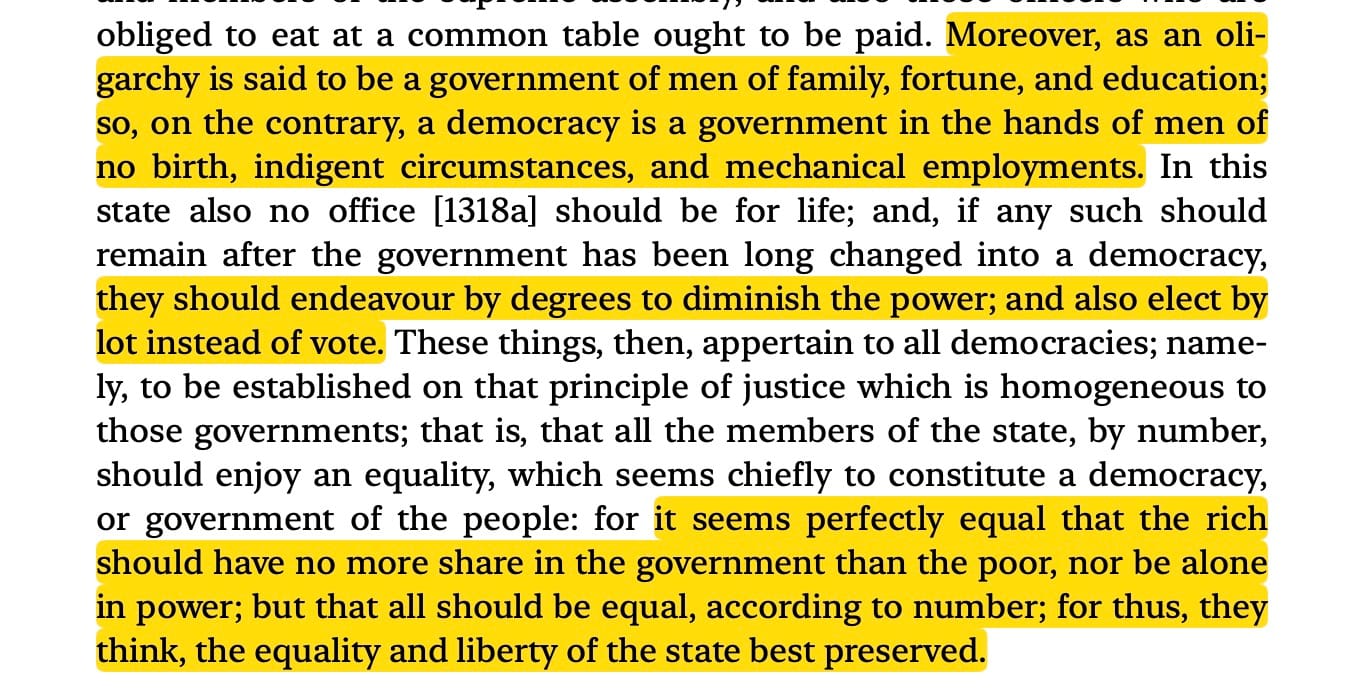
The Politics: Aristotle
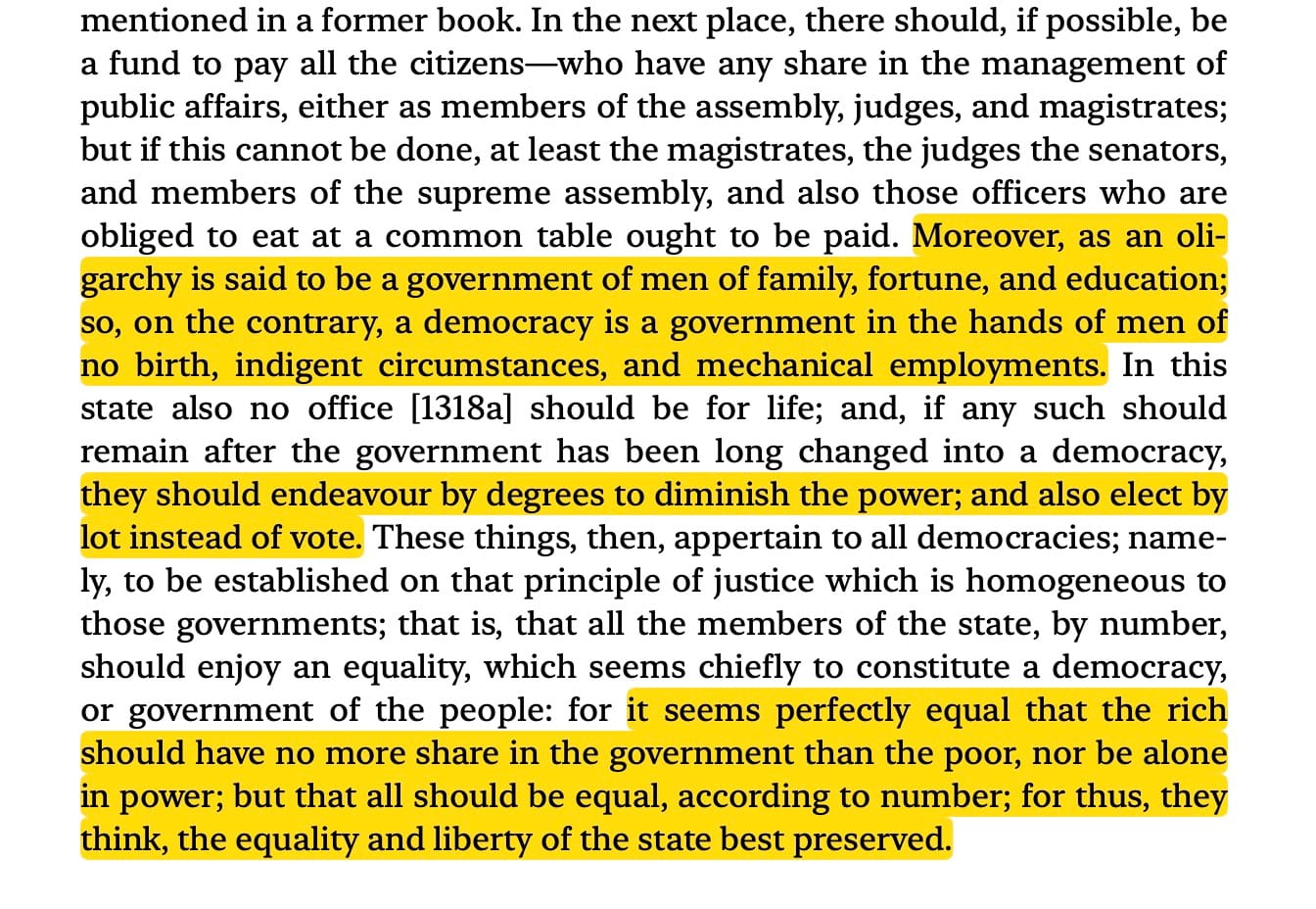
I opened this book to just find a quote to dunk on America with (representative democracy trends to oligarchy), but it's much more than that. Aristotle goes on a Mediterranean tour of democracies and finds a huge variety, each suiting very different populations, and all constantly evolving.
Aristotle really made me think much more deeply about the meaning of ‘democracy,’ and able me to see it all over the supposed authoritarian world, and almost completely missing from the so-called democratic world (what I call Democracy™).
indi.ca/
chinese-democracy-1
how-democracy-is-not-good
the-triangle-of-power
how-china-is-the-most-democratic-country-in-the-world
how-liberal-democracy-is-bullshit
power-to-the-people-beyond-parliament-why-not
why-voting-is-dumb
how-school-launders-class
does-electoral-democracy-work
why-crisis-is-the-time-to-build
mosque-and-metropolis
democracy-is-bullshit
unhappy-governments-shouldnt-be-overthrowing-others
what-if-opinion-polls-actually-mattered
the-undeath-of-democracy
trumps-transition-plan-plumbing-the-deep-state
conservatives-are-playing-the-long-game-and-winning
zombie-democracy
how-protest-is-a-democratic-institution
-300
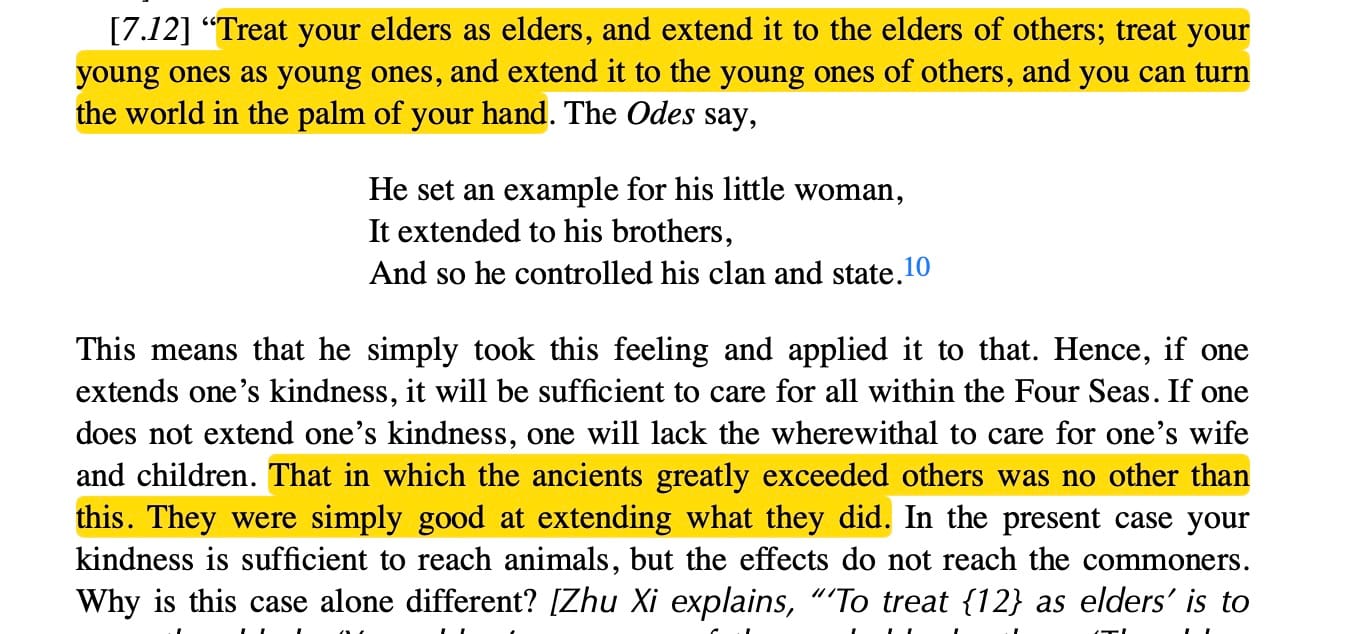
Mengzi
Mengzi is, for me, the most practical Confucian sage. This translation by Bryan Van Norden is very good and Norden is an interesting scholar in his own right. What I got out of Mengzi (also known as Mencius) was a sense that people are generally good, and that there is a way to cultivate that goodness, like an organic 'sprout' within us.
indi.ca/
how-to-garden-your-goodness
indi.ca/the-unlearning-of-empathy
how-to-deprogram-yourself-from-hating-china/
Zhuangzi
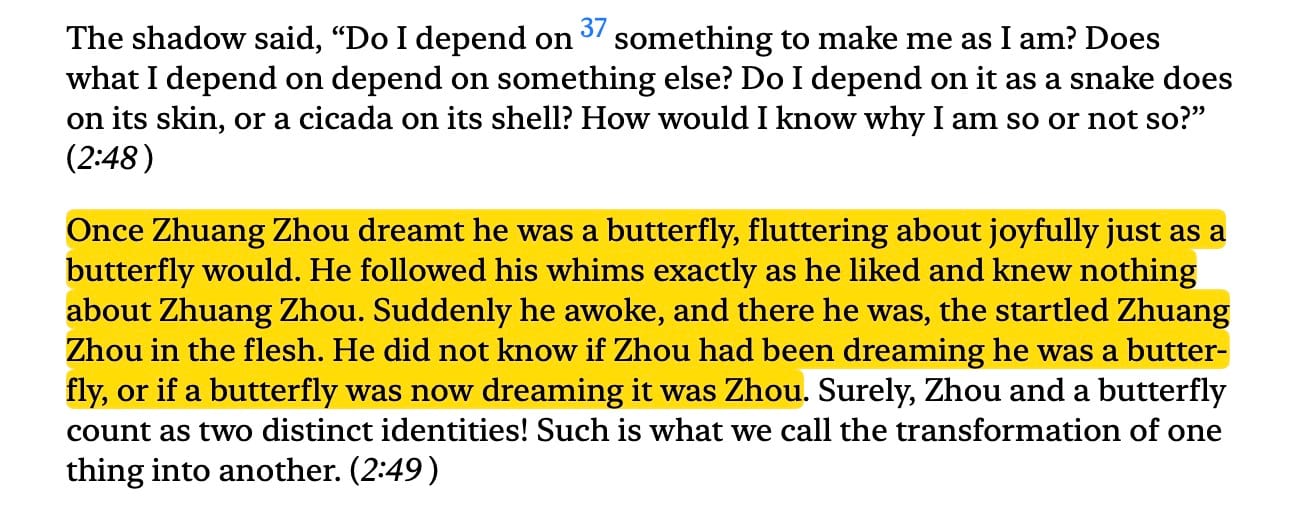
Zhuangzi is my favorite Chinese philosopher, though I understand him the least. This is the Hackett translation by Brook Ziporyn.
Zhuangzi is the anti-sage, saying, “The sages are the sharpest of all the world’s weapons and should not be displayed. Hence, only when sagacity is destroyed and wisdom abandoned will the great robbers disappear. Smash the jades and crush the pearls, and the small robbers will not arise. Burn the tallies and shred the seals, and the people will become plain and straight. Break the measures and split the scales, and the people will no longer bicker and fight. Only when we decimate the sagely laws throughout the world will the people be able to listen to reason.”
In one story, a King offered Zhuangzi Prime Ministership, and Master Zhuang responded thusly,
Zhuangzi, holding fast to his fishing pole, without so much as turning his head, said, “I have heard there is a sacred turtle in Chu, already dead for three thousand years, which the king keeps in a bamboo chest high in his shrine. Do you think this turtle would prefer to be dead and having his carcass exalted or alive and dragging his backside through the mud?” The emissaries said, “Alive and dragging his backside through the mud.” Zhuangzi said, “Get out of here! I too will drag my backside through the mud!”
Zhuangzi is a challenging read in the best possible way. Very entertaining, but also completely mind-bending.
indi.ca/
the-power-of-being-useless
1-5/
how-long-will-the-fall-be
how-to-deprogram-yourself-from-hating-china
the-infinite-intestine
totalitarian-nightmare-arendt
forget-gdp-we-need-zdp
how-art-creates-parallel-universes
why-sapiens-is-a-hate-crime/
To be continued. This is just up to the Axial Age.